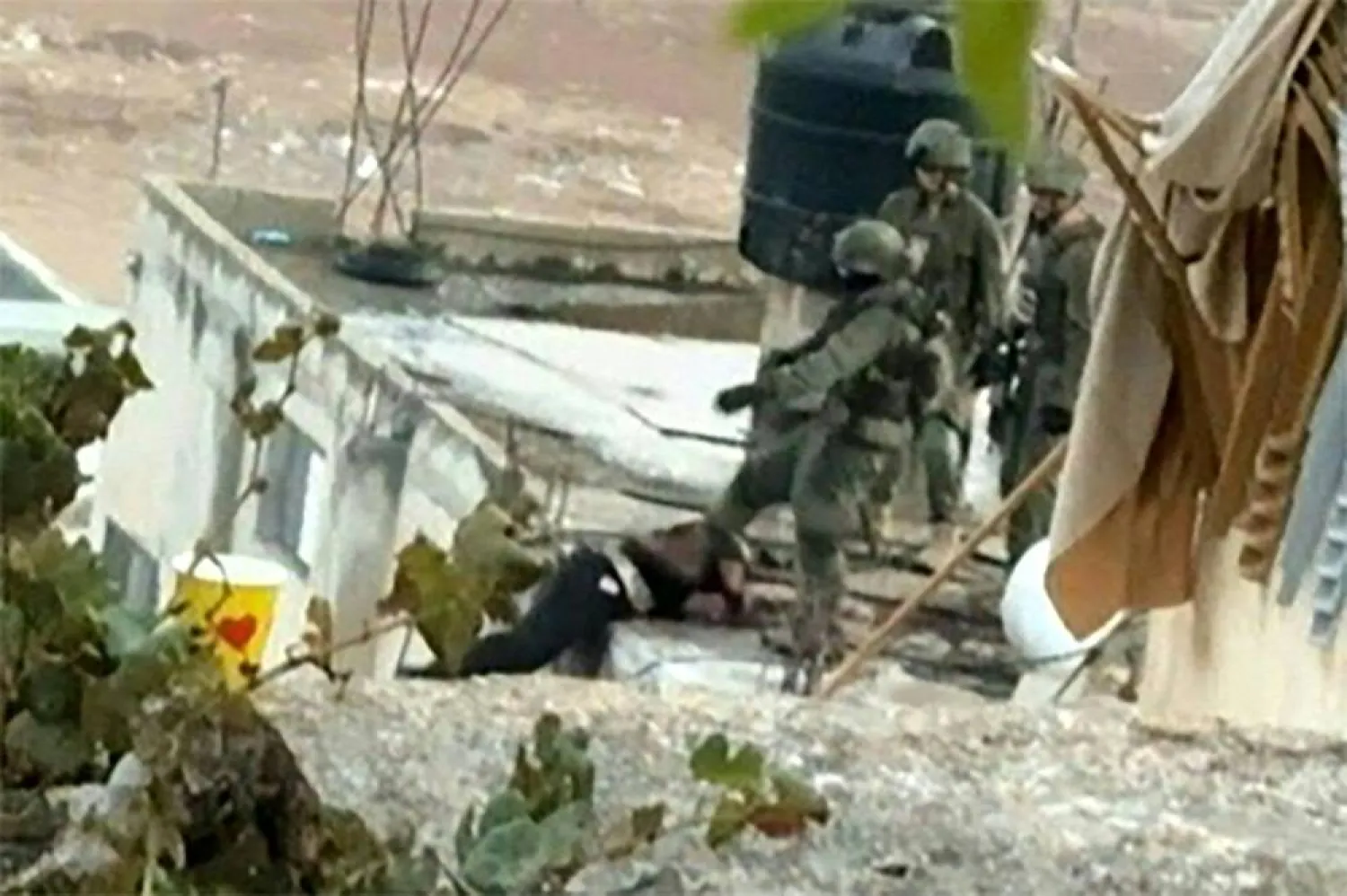Israeli soldiers pushed three apparently lifeless bodies from rooftops during a raid in the northern part of the occupied West Bank on Thursday, according to an Associated Press journalist at the scene and video obtained by AP.
An AP journalist in the town of Qabatiya witnessed three soldiers push the bodies off the roofs of adjacent multi-story buildings, sending them falling out of view. It was the latest in a series of suspected violations by Israeli forces since the start of the Israel-Hamas war that rights groups say show a pattern of excessive force toward Palestinians.
"This is a serious incident that does not coincide with IDF values and the expectations from IDF soldiers," the military said in a statement, using the acronym it goes by. "The incident is under review."
Israel said its troops had killed four fighters during operations in Qabatiya on Thursday.
The Palestinian Health Ministry in Ramallah did not immediately confirm multiple deaths, but said one person had been killed in the town and that Israeli gunfire sent 10 Palestinians to the hospital.
In the video obtained by AP, three soldiers can be seen picking up what appears to be a stiff body and then dragging it toward the edge of a roof as troops stand on the ground below. The soldiers on the roof peer over the edge before heaving the body off.
On an adjacent rooftop, the soldiers hold another apparently lifeless body by its limbs and swing it over the edge. In a third instance, a soldier kicks a body toward the edge before it falls from view. Photos captured by AP during Thursday’s raid show an Israeli army bulldozer moving near the buildings where the bodies were dropped.
Other journalists at the scene also witnessed the bodies being pushed off the roofs.
The identities of the dead and the cause of their deaths were not immediately known.
When withdrawing from raids, the army usually leaves behind any Palestinians killed by Israeli gunfire. Occasionally the army brings dead bodies into Israel.
Under international law, soldiers are supposed to ensure dead bodies, including those of enemy combatants, are treated decently.
"There is no military need to do this. It’s just a savage way of treating Palestinian bodies," said Shawan Jabarin, the director of Palestinian rights group Al-Haq, after watching the footage.
Jabarin said the video was shocking but not surprising, and he was doubtful Israel would properly investigate the incident. The Israeli military rarely prosecutes soldiers in cases of reported harm to Palestinians, rights groups say.
"The most that will happen is that soldiers will be disciplined, but there will be no real investigation and no real prosecution," said Jabarin.
The AP reporter who witnessed the raid saw a blindfolded and shirtless Palestinian man kneeling before an Israeli army jeep and armed soldiers. Smoke billowed from several buildings that appeared damaged.
As the world’s attention focuses on the far more deadly war in Gaza less than 80 miles away, scores of Palestinians have been killed, shot and arrested in the West Bank, where the Israeli military has waged a monthslong crackdown.
Over 700 Palestinians in the West Bank have been killed by Israeli fire since the war erupted on Oct. 7, according to the Palestinian Health Ministry. The northern West Bank has seen some of the worst violence since the war’s outbreak.
Israel says the raids are necessary to stamp out militancy, which has flared since Oct. 7. In that time, Palestinian gunmen have attacked Israelis at checkpoints and staged several attacks within Israel.
Earlier this month, Israel staged its deadliest raid into the northern West Bank since the war began, killing at least 33 people.









